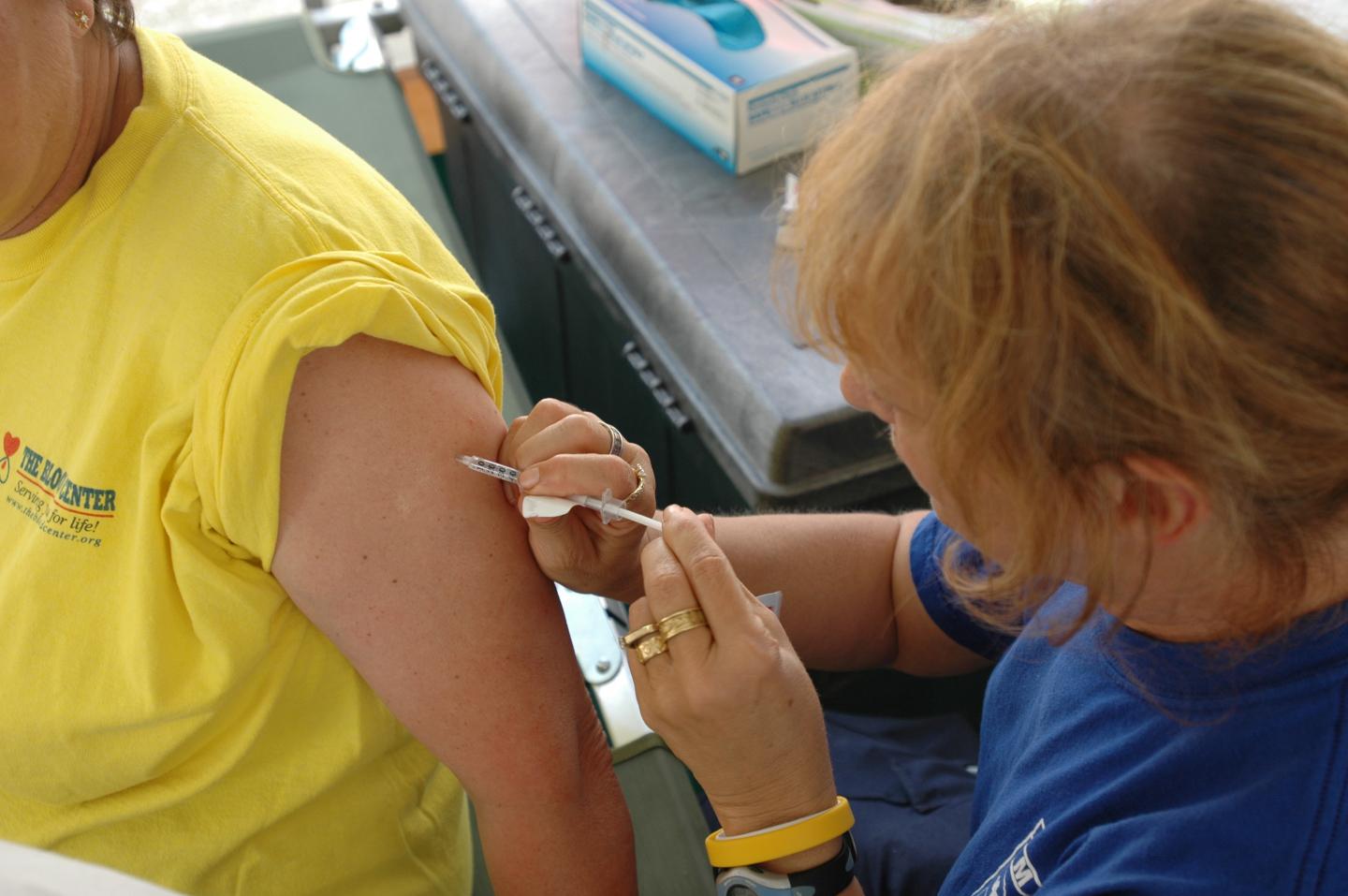Source of disease prevalence information impacts effectiveness of vaccination programs

Credit: FEMA/Mark Wolfe
Computational modeling of social networks suggests that vaccination programs are more successful in containing disease when individuals have access to local information about disease prevalence. Anupama Sharma of The Institute of Mathematical Sciences in Chennai, India, and colleagues present these findings in PLOS Computational Biology.
The success of vaccination programs can eventually undercut their effectiveness when individuals choose not to get vaccinated because they believe they are protected by herd immunity. During an epidemic, a person who previously avoided vaccination may perceive higher risk of infection and choose to get vaccinated. Such decision-making is influenced by the person’s access to information about disease prevalence at the local or global level.
To explore how disease prevalence information influences the success of a vaccination program, Sharma and colleagues employed a computational modeling approach. Using principles of game theory, they probed the relative importance of information about disease prevalence in an individual’s local neighborhood versus disease prevalence in the entire population.
The analysis shows that when individuals rely on global disease prevalence information, for instance obtained from mass media, vaccination is unable to prevent a large section of the population from becoming infected. In contrast, when individuals make vaccination decisions that are appropriate to their immediate circumstances, the final size of an epidemic outbreak may be smaller.
“While mass immunization programs are a crucial bulwark against pandemic outbreaks, it is essential to ensure that incidence information is disseminated strategically,” Sharma says. “Our findings argue strongly for a transparent system of disseminating detailed incidence data, whereby individuals have real-time access to local information and do not rely only on mass media coverage.”
Future research could take into account further complexities, such as dynamic social networks that change over the course of an epidemic or individual’s varying perceptions of severity between diseases like Ebola and influenza. The authors also suggest that their computational framework could be extended to explore the influence of opinions about vaccination shared over online social networks that are very different from the networks over which a disease spreads.
###
Peer-reviewed / Simulation/Modeling / N/A
In your coverage please use this URL to provide access to the freely available article in PLOS Computational Biology:
https:/
Citation: Sharma A, Menon SN, Sasidevan V, Sinha S (2019) Epidemic prevalence information on social networks can mediate emergent collective outcomes in voluntary vaccine schemes. PLoS Comput Biol 15(5): e1006977. https:/
Funding: SNM was supported by the IMSc Complex Systems Project (12th Plan) funded by the Department of Atomic Energy, Government of India. VS was partially supported by University Grants Commission-BSR Start-up Grant No:F.30-
415/2018(BSR). The simulations and computations required for this work were supported by High Performance Computing facility (Nandadevi) of The Institute of Mathematical Sciences, which is partially funded by Department of Science and Technology, Government of India. The funders had no role in study design, data collection and analysis, decision to publish, or preparation of the manuscript.
Competing Interests: The authors have declared that no competing interests exist.
Media Contact
Prof. Sitabhra Sinha
[email protected]
Related Journal Article
http://dx.




